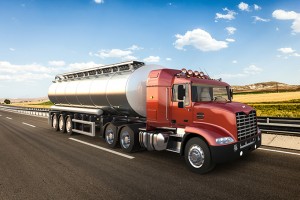
Currently, the Department of Transportation (DOT) and Federal Motor Carrier Safety Administration (FMCSA) require that all trucks operating on the road must carry a 10- pound fire extinguisher onboard. The chance of a 10-pound fire extinguisher protecting a driver and a truck weighing up to 80,000 pounds is very slim. This absolute need for further protection and vehicle fire suppression is where Koorsen, national trucking associations, and independent advocates have stepped in with solutions to protect truck drivers at risk.
Today’s trucking industry is littered with many unavoidable risks and dangers, but fire safety is one that we have the power to tackle head-on. Truckers such as Hal Kiah and Steve Sturgess have written impassioned arguments for the need to step up fire safety precautions and regulations on large rigs.
Truck fires have a wide variety of causes and can result in catastrophic damage to both the truck and driver. Causes of vehicle fires include:
- Spilled fuel after accidents
- Improper use of flares
- Underinflated tires
- Short circuits in electrical systems
- The driver smoking
- Improper fueling of the rig
- Flammable cargo
- Poor ventilation for cargo
Ultimately, relying on a small fire extinguisher isn’t enough to prepare and protect truck drivers in the case of an emergency. This is why American Truck Associations (ATA) and independent drivers have rallied around the need for fire detection units and fire suppression systems in all rigs. Even further, the Technology & Maintenance Council of the ATA focuses on industry-specific electrical issues in cases of truck fires and determines best practices.
A fire suppression system that’s customized and specifically fit to the equipment protects the equipment investment but, more importantly, keeps the driver safe. Koorsen technicians can service any manufacturer’s system, including designing and installing systems for heavy equipment, from utility trucks to construction vehicles.
Koorsen’s vehicle fire suppression system is an automatic heat-detecting system designed to be highly reliable on mobile equipment in all types of weather and operating environments. The system provides 24-hour protection, whether the operator is present or not.
Fred Hillman, Koorsen Off-Road Branch Manager, says, “Koorsen’s pre-engineered fire suppression systems are specifically designed for each individual vehicle based on horsepower, fuel and hydraulic capacities, vehicle weight, environment that the vehicle will be operating in, and manufacturing recommendations.”
The basic system consists of one agent storage cylinder. The fire suppression agent is distributed by means of a distribution network typically composed of stainless steel tubing and/or a fire-resistant hydraulic hose. Agent discharge nozzles are strategically located to deliver the fire suppression agent to known hazard areas such as turbo chargers, starters, alternators, batteries, hydraulic pumps, and in some cases brakes.
The system is automatically discharged when the Linear Wire Heat Detector senses a fire condition in a protected zone. The system can also be manually discharged the instant the operator notices a fire condition. Vehicle fire suppression systems typically remain serviceable for the life of the vehicle, and inspections are required at six-month intervals.
For more information regarding heavy equipment fire suppression systems, contact a Koorsen mobile fire suppression expert today.

